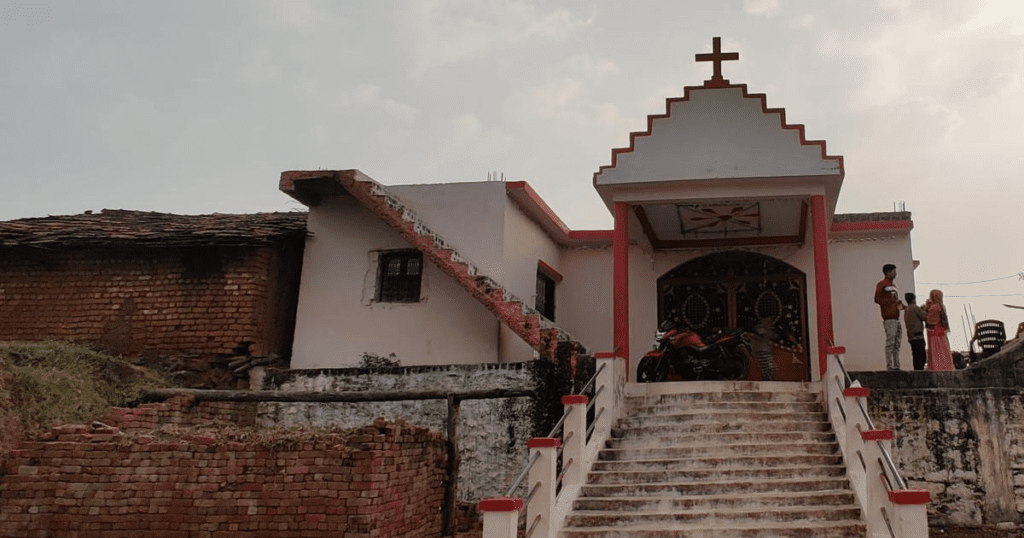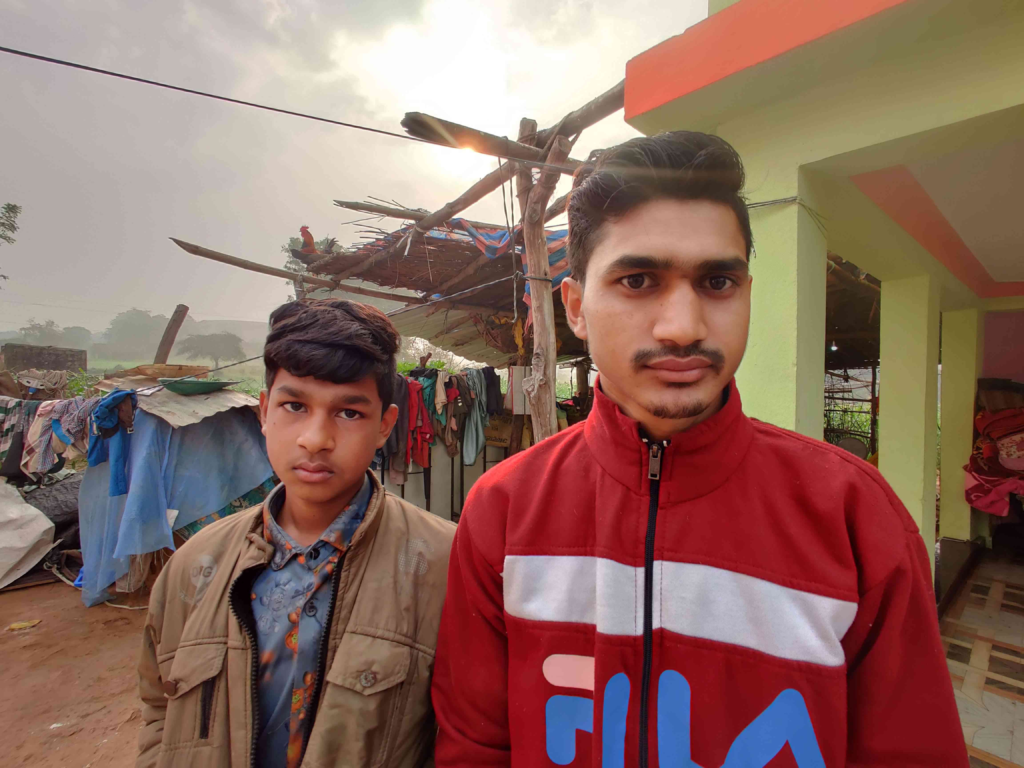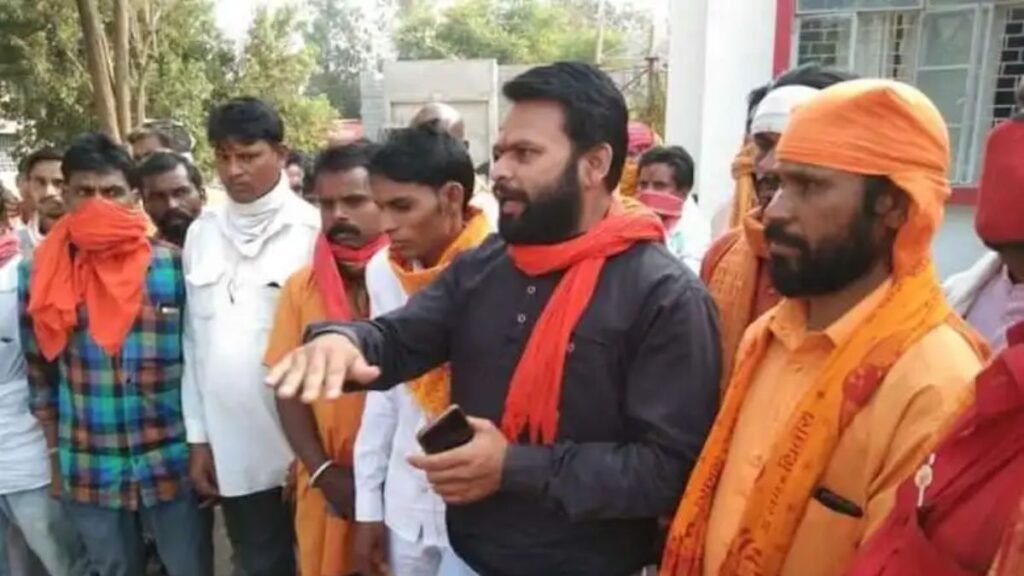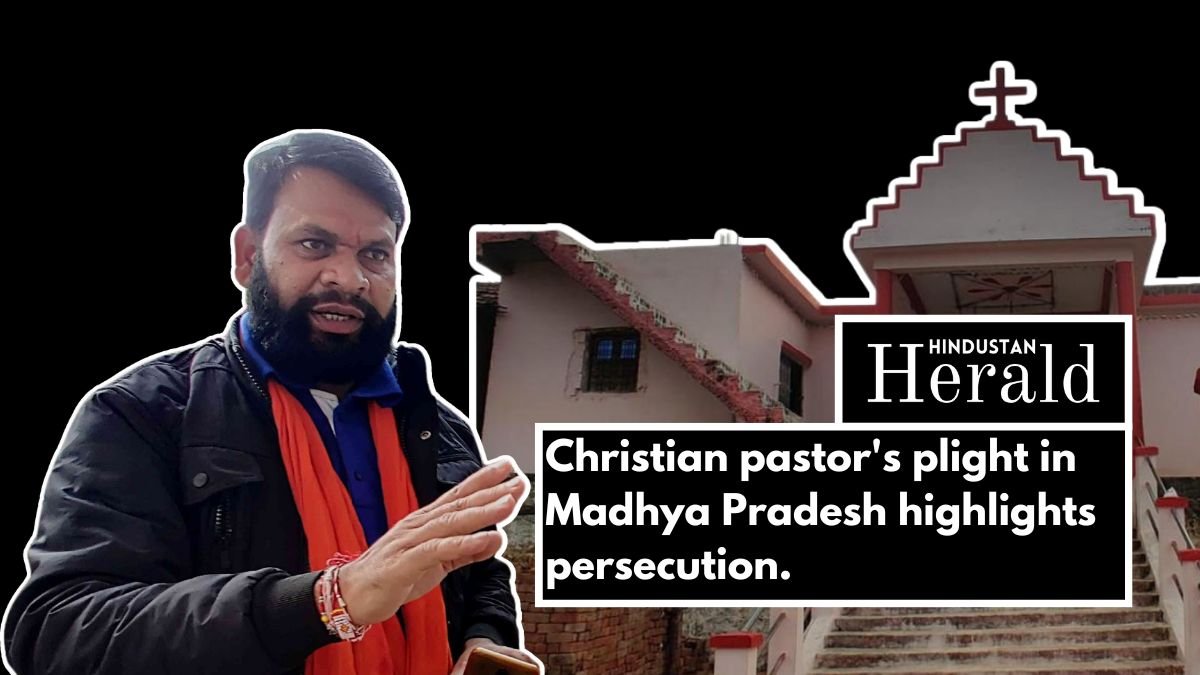Christian Pastor Ramesh has now been imprisoned for more than six months. His loved ones believe it is an attempt to coerce him into denying his religious beliefs.

Jhabua is a district that straddles the states of Madhya Pradesh and Gujarat. With the passage of the bill, Hindu nationalist groups in Jhabua stepped up their campaign against Christian Community. Anti-Christian sentiment has grown in Jhabua in recent years, with rallies led by local tribal activists like Prem Singh Damor, who has ties to the Vishwa Hindu Parishad. Damor is an active member of the tribal community.
Law enforcement officers arrested a Christian pastor in the town of Padalva on December 5th. Ramesh Vasunia is the author. His alleged crime was converting his tribal village’s non-Christian neighbours to Christianity.
The first information report was filed against him in response to a complaint filed by Moga Vasunia, a 70-year-old Hindu pandit from the same village. Moga Vasunia denied filing a formal written complaint with the authorities. He claimed he couldn’t read or write. He also denied entering the prayer hall where Pastor Ramesh was said to have forced the conversion.
Even though Ramesh Vasunia has been in custody for seven months, he is still being held. He has attempted and failed to post bail five times.
Pastor Ramesh’s son, Samuel Vausnia, 23, said his father is still in jail on false charges. The people in this city do not provide us with the peace we seek.
Moga Vasunia and his son Nagar, according to Samuel Vasunia, have been waging a covert campaign of intimidation against him and his family since the incident in question. For some time, the pastor and the pandit had been at odds over religious matters. Some claim that Moga Vasunia became offended whenever Pastor Ramesh demonstrated his Christian faith.
“Of all the people in the world, why would my father try to convert him?” Samuel Vasunia wondered.
Given his father’s lengthy incarceration, he claims he recently pleaded with Moga Vasunia to drop the complaint. He claimed that the pandit and his son agreed to do so in exchange for a signed document declaring that the pastor and his family would no longer practise Christianity.
According to Samuel Vasunia, if Moga Vasunia and his son provided written confirmation that their purported police complaint was false, Moga and his son would file such a statement. This information was revealed to Samuel Vasunia by Samuel Vasunia. “But he did not agree,” Samual Vasunia countered. “He is using fear and intimidation to force us to deny Jesus Christ. He made a false statement and is now attempting to exploit the situation.
Nagar, Moga Vasunia’s son, denied the allegations. They requested that we withdraw the complaint, but my father testified in court and had his statement recorded. We declined, however, because my father’s statement had already been recorded. Moga Vasunia declined to comment further on the situation.
Damor, who was present when the FIR against Pastor Ramesh was filed, has continued to accuse the local Christian community even after the FIR was filed. Damor stated that the individual should be imprisoned because they earned it. More charges are likely to be filed against these Christians in the coming days and weeks.

An arrest and a demand
The Freedom of Religion Act, also known as the “anti-love jihad law,” strengthened pre-existing provisions that allowed for the prosecution of alleged forced conversion. If you coerce, entice, or deceive someone into converting against their will in India, you could face ten years in prison and a hundred thousand rupee fine.
Despite its name, the law restricts the freedom to express one’s religious beliefs in new ways. In the case of a conversion, for example, the district administration asks for 60 days’ notice.
Narottam Mishra, the home minister of Madhya Pradesh, promised the assembly that the bill would be the country’s toughest anti-religious conversion law.
The law in Jhabua only exacerbated already-existing Adivasi community tensions. Damor organised protests in which he agitated against Adivasi Christian converts, accusing them of being forced to become Christians. These mobilizations exacerbated fears that the Adivasi culture would be lost as a result of these conversions.
The law in Jhabua only exacerbated already-existing Adivasi community tensions. Damor organised protests in which he agitated against Adivasi Christian converts, accusing them of being forced to become Christians. These mobilizations exacerbated fears that the Adivasi culture would be lost as a result of these conversions.
The notices were challenged in the Indore High Court by six different pastors. One of them was called Pastor Ramesh. On December 4, the court temporarily halted the notifications. Due to “procedural lapses,” the district administration withdrew them the next day.
On December 5, police in Jhabua, India, arrested Pastor Ramesh, his wife, and four other members of the local Christian community. So far, he is the only one who is still being held. Despite the retraction of the notices, Pastor Ramesh faces a protracted legal battle.

Attempting to obtain Christian bail to get out of jail
According to the complaint filed by someone claiming to be Moga Vasunia, the 70-year-old pandit and four other people went to the prayer hall where Pastor Ramesh was holding a service on December 5th. A pastor allegedly sprayed and doused them in holy water at that location. To entice the visitors to become Christians, he allegedly offered them Rs 1,000, a motorcycle, and free medical care.
According to Samuel Vasunia, local police officers arrived at their home the same day, arrested Pastor Ramesh, and questioned him at the Ranakpur police station. The pastor’s wife, Kumtu Vasunia, accompanied her husband to the police station, along with four other women who had attended the chapel. Kumu Vasunia allegedly swung at one of the complainants, who was also present, as the argument heated up.
Following that, Pastor Ramesh and the five women were arrested and charged with violating the Freedom of Religion Act by attempting to convert non-Christians to Christianity. The charge sheet for the case was submitted to the court within a month of the initial round of investigations being completed.
At the moment, Pastor Ramesh’s legal counsel is completing their sixth bail application. In December, lower courts denied bail to Pastor Ramesh and the other five accused. A session court ruled that there was sufficient evidence to convict them and that releasing them would taint witnesses.
His attorneys argue that the charge sheet, which consists of police and witness statements, is insufficient evidence. At least one of the witnesses will most likely testify against you now.
Kumu Vasunia and four other women were released from jail on January 17 by the Indore High Court. This was their third attempt to have their bail revoked.
The attorneys for the five defendants argued that their clients were innocent and had “been falsely implicated in the present crime,” which was religious conversion through deception. He argued that because the investigation into the case had been completed and the trial was expected to take a long time, the accused should be allowed to post bail.
The court granted bail to the five women after they each posted Rs 50,000, “without commenting on the merits of the case.” The judge provided no information about the nature of the case. A personal guarantor was also required, who would be fined the same amount if the women did not appear in court on the scheduled dates.
The court order also stated that if the five defendants were “found to be involved in any other offence during the trial,” their bail would be automatically revoked, allowing authorities to arrest the women involved in the current case.
However, it appears that the Supreme Court has yet to rule on Pastor Ramesh’s bail application. Pastor Ramesh’s legal representatives initially requested bail in January but withdrew their request later that month. One of the lawyers representing him, Advocate Ashish Gupta, stated that this was standard procedure.
Ashish Gupta, the pastor’s attorney, said the judge’s refusal to grant bail “is what happens when the judge is unlikely to grant bail.”
Also Read : Zuckerberg And Sandberg To Testify In Cambridge Analytica Lawsuit
The judge considers both sides’ arguments. If it appears that the judge will not release the defendant on bail, the judge will not discuss the case’s merits. To avoid jeopardising the ongoing trial in the lower court, he requests that the attorney withdraw the application.
There were no more bail appeals because the ones filed in February and June had already been withdrawn. One of Pastor Ramesh’s lawyers, Abhay Kumar Saraswat, claims that the police may have broken protocol by arresting his client under the Freedom of Religion Act. In court that June, he raised this exact point as an argument.
“I argued that the police had to seek permission from the district magistrate before proceeding and registering an FIR or arresting the accused under Sections 501 and 503 of the MP Freedom of Religion Act,” he said. This was a reference to the process of obtaining a warrant from the district magistrate to make an arrest. He claimed that the police had failed to provide paperwork detailing the investigation process to the accused and their attorneys.
Despite the best efforts of the prosecution and defence, Saraswat believed the court was still unwilling to grant bail. “The judge believes that when the crime is serious, some time must pass before the accused is granted bail,” the judge said. “Some time must pass before the accused is granted bail,” the judge said.

Samuel Vasunia has filed a bail application in the Indore High Court. At this time, he intends to proceed with his request to have the plea dismissed. If the appellants are denied bail by the court of appeals again, they may appeal to the Supreme Court.
(The Guardian and Reuters were used as resources)
Zuckerberg || Don’t Forget To Subscribe To Our Newsletter To Get Curated Content In Your Mailbox. Also, Follow Us On Our Social Media Channels: Facebook | Instagram | Twitter | Linkedin | And Youtube.














